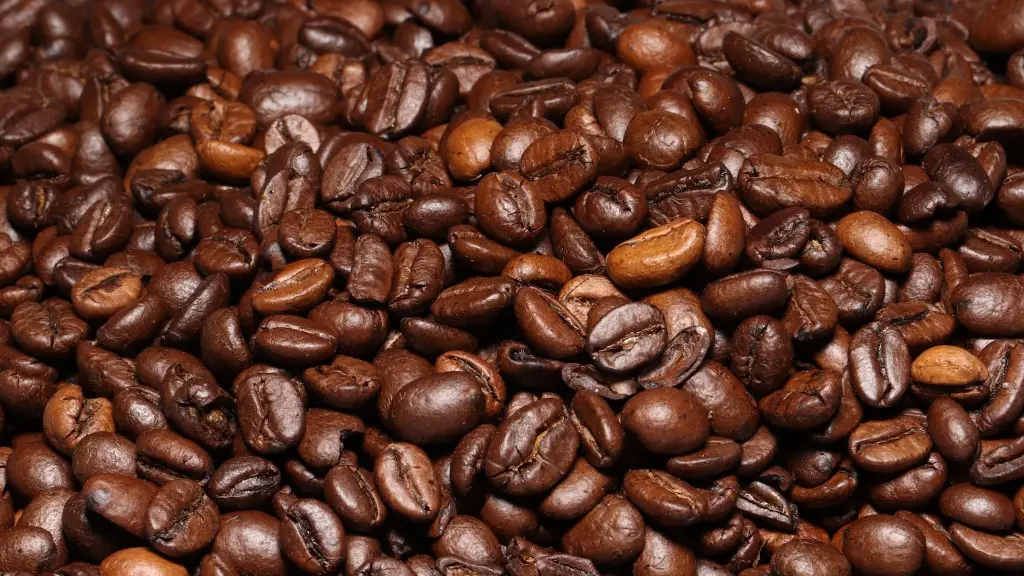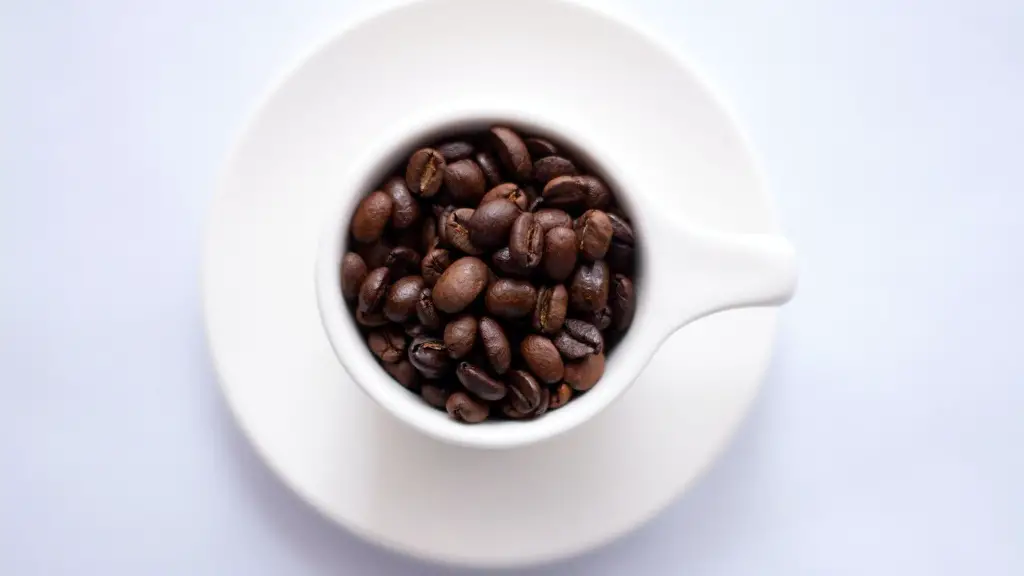If you’re someone who loves their morning cup of coffee and workout daily, then you probably often wonder if it is good to drink coffee after a workout. This question is widely debated and there exist contrasting opinions as to whether coffee consumption is beneficial following a workout. Most experts are in agreement that coffee in moderation can offer health benefits, however there are several issues to take into account before drinking a cup of coffee following a workout.
Caffeine, which is present in coffee, is a stimulant that can help increase alertness and improve concentration. Therefore, coffee can boost the performance of athletes during their workouts. Studies have suggested that coffee can also help speed up the body’s metabolism and could improve exercise performance by up to 11%. This could be beneficial for athletes or fitness enthusiasts who work out regularly.
Coffee has an impressive amount of antioxidants and vitamins, including riboflavin, niacin, magnesium and potassium. These nutrients play an important role in maintaining one’s general health, as well as in helping to rebuild muscles and tissues. Therefore, consumption of coffee following a workout could be beneficial for replenishment of nutrients and improving overall health.
Although there can be potential health benefits from drinking coffee after a workout, it is important to be aware that there can also be risks associated with consuming coffee. Studies have shown that drinking coffee can result in side-effects such as jitters, lightheadedness, dehydration, and headaches. Additionally, too much coffee intake can result in an increase in heart rate, as well as difficulty sleeping. Therefore, it is important to ensure that coffee consumption stays within the recommended daily intake amount of 400 milligrams per day.
In conclusion, moderate intake of coffee after workout can have potential health benefits. It can be helpful for replenishment of nutrient levels, increases alertness and concentration, and can help speed metabolism. However, it is important to remain aware of the risks associated with excessive coffee consumption and ensure that intake does not go beyond the daily recommended limit.
Effects of Drinking Coffee after Workout
Some studies suggest that drinking coffee following a workout may help speed up the recovery process. Caffeine can help reduce muscle soreness and fatigue, as well as improve one’s performance on future exercise sessions. Caffeine molecules are also known to increase calcium absorption in muscles, which can in turn help reduce inflammation and aid in muscle recovery. However, it is important to note that the effects of caffeine on recovery remain inconclusive and that further research is needed to understand the impact of coffee on muscle recovery.
Coffee also acts as a diuretic, meaning that it can lead to dehydration if consumed in large quantities. During exercise, electrolyte balance is important for optimal performance and preventing fatigue; therefore it is critical to ensure that one does not become dehydrated due to excessive coffee consumption. Drinking water before and after workouts can help with ensuring that one’s body remains hydrated.
Whilst drinking coffee prior to exercising may be beneficial to boost performance and alertness, it is important to be aware that its effects on the body may vary depending on the individual. Those who don’t usually drink coffee should ensure to make gradual adjustments in order to identify their tolerance level, and should also ensure that they don’t consume too much coffee flavorants, additives and sugar.
Importance of Mental and Physical Wellbeing
It is important to remember that your physical and mental wellbeing is of the utmost importance. Everyone’s body is different and everyone has different needs when it comes to exercise and recovery, so it is essential to make sure your own needs are properly addressed. Listening to your body, being mindful of what works for you, and ensuring that you also get enough rest is critical for your long term health and well-being. Additionally, it is important to be aware that not all post-workout beverages need to be caffeinated drinks or sugary energy drinks; hydration through drinking water, eating whole foods and getting enough sleep are key components to achieving long term health and physical performance.
It is also important to take into account one’s overall consumption of caffeine. Coffee is not the only source of caffeine; other food sources, such as chocolate, tea and soft drinks, could also contain significant amounts of caffeine. If your caffeine consumption is higher than 400 milligrams per day, it is recommended to decrease one’s caffeine intake to ensure a state of balance and optimal health.
Moderation is Key
In conclusion, the decision to consume coffee after a workout will vary depending on the individual. Generally, experts agree that moderate coffee intake can offer health benefits, including an increase in alertness and nutrients replenishment. However, it is important to be mindful of how much coffee one consumes and to stay within the daily recommended limit. Additionally, caffeine intake from all food sources should be taken into account, and other aspects of post-workout recovery, such as hydration, should not be neglected. Ultimately, if consumed responsibly, caffeine can be a potential ally in your exercise routines.
Health Benefits of Coffee
The health benefits of coffee have been widely studied and reported in numerous scientific studies. Studies have suggested that coffee can help improve memory, protect against Parkinson’s and Alzheimer’s diseases, and protect against certain types of cancer. Studies have also concluded that coffee consumption can help reduce the risk of diseases such heart disease and stroke, as well as contribute to a longer life expectancy with lower mortality rate.
Coffee can also help people manage their weight, as it can increase metabolism and reduce appetite. A recent study has suggested that coffee consumption can reduce overall body fat and that it can also reduce the risk of obesity-related diseases. Additionally, when consumed in moderation, coffee can help manage blood sugar levels and provide additional energy for exercise sessions.
Coffee is also a great source of antioxidants. Antioxidants can help protect the body from free radicals, which can help keep disease and illness at bay. They can also help reduce inflammation and provide relief from chronic pain. Additionally, coffee is rich in micronutrients such vitamins B and magnesium, both of which are essential for one’s overall health.
Risks of Excessive Coffee Consumption
Although there are numerous potential health benefits associated with moderate coffee consumption, it is important to be aware of the risks associated with excessive coffee intake. Excessive intake of caffeine has been associated with increased blood pressure, headaches, jitters and nausea. Additionally, large amounts of caffeine can lead to dehydration and can affect sleep quality, which can lead to fatigue during the day. Therefore, it is important to make sure that one stays within the recommended daily intake of 400 milligrams of caffeine and to be aware of how much caffeine is consumed from other food sources.
In conclusion, when consumed in moderation, coffee may offer various health benefits, such as improved memory, protection against illness and diseases, as well as a boost in overall energy levels. However, excessively consuming coffee can have adverse effects, such as headaches, insomnia and increased blood pressure, so it is important to ensure that coffee intake remains within the recommended daily limits.
Other Dietary Options
Various dietary options are available when it comes to post-workout recovery foods, ranging from whole foods to meal replacements and energy bars. Whole foods such as fruits and vegetables, fish and lean meat, nuts and seeds, and whole grains are excellent sources of nutrients and can provide sustained energy as well as a quick recovery. Additionally, drinking plenty of water or consuming other replenishing beverages, such as electrolyte drinks or herbal teas, can also help with recovery.
In the long term, a healthy, balanced diet is the best way to ensure that your body receives the nutrients it needs. Therefore, it is important to listen to your body and to pay attention to which foods and drinks make you feel light and energised, and which make you feel sluggish. Taking this into consideration will help to ensure that your diet is helping to keep you healthy and energised in the long term.
There is no one size fits all approach when it comes to diet and exercise, as everybody has different needs and requirements. Therefore, it is important to find out what works best for you when it comes to post-workout recovery, and to ensure that you get the necessary nutrients and energy to keep your body healthy and energized through an appropriate, balanced diet.




